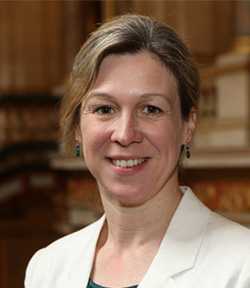Columns
Climate views from the top of the world
The UK is standing shoulder to shoulder with Nepal to tackle climate change..jpg&w=900&height=601)
Lisa Honan & Nicola Pollitt
Since arriving in Nepal, we have both been struck by how real the impacts of climate change are here—on mountains and rivers but most of all, on people. Climate change is now a reality for everyone—from farmers experiencing new plant diseases to communities experiencing landslides in the hills and mountains, from city dwellers coping with new diseases like dengue to the flood victims in the Tarai. This is why the UK wants to support Nepal tell its climate story from ‘the top of the world’, highlighting the actions Nepal is taking to tackle the climate crisis and promoting its ambitious plans for the future.
Nepal is in the top 20 most climate-vulnerable countries, with 60 percent of its population vulnerable to climate impacts and its glaciers retreating at up to 60 metres per year, creating risky glacial lakes. Last year, Dengue arrived in the Kathmandu Valley as temperatures rose at twice the global average and extreme weather became the new normal—with Nepal experiencing its first tornado that tragically killed 35 people. This is the reason work on climate security is so important for Nepal. The UK is helping Nepal improve its early warning systems and establish the new Disaster Management Agency. We are also supporting Nepal to build more climate-resilient infrastructure and develop better ways of supporting people after disasters and helping them move away from vulnerable areas and vulnerable livelihoods.
Nepal is also a top climate laboratory, with land that rises from 80 metres to 8,000 metres—all within an 80-kilometre range. Nepal provides a unique opportunity to see both the challenges of climate change and test solutions, from community forestry to water management to climate-smart agriculture and, in Visit Nepal Year, eco-tourism. Nepal has a lot to teach the world, particularly on how nature-based solutions can preserve its unique landscapes and protect against climate change. The UK has worked with Nepal to develop some of these new solutions, from solar water pumping for farmers, to Local Adaptation plans, weather insurance for apple farmers and world-class climate modelling support to improve the accuracy of weather forecasting.
Nepal has natural resources that can make it a leader in its climate ambition—with very low emissions, hydropower under development, solar resources on tap and a world-class record in forestry. Nepal can lead the region and the world by showing how its green economy can accelerate growth, reduce poverty and even reduce the emissions of its neighbours like India. That is why the UK is working with Nepal to develop its natural resources from the Arun 3 and Trishuli hydro projects, to innovate solar programmes and helping set up the Forest Development Fund.
The country is situated at the heart of the Himalayas—the water tower of Asia—feeding rivers that 1.65 billion people rely on and whose development is dependent on better regional co-operation. Similarly, regional issues such as air quality, power trade and glacial retreat need regional approaches to be effectively tackled. We are proud to support Nepal in its groundbreaking Sagarmatha Dialogue initiative—working across the region and beyond to put the Himalayan Hindu Kush Call to Action into practice.
From the President to women in vulnerable communities, women have a critical role in addressing the climate crisis. Nepal has shown that women understand the importance of action on this ‘man-made’ problem and are a powerful force for change. So, this year, we are committed to adding our voices to those of Nepali women that are calling for increased ambition and action on climate change—through a series of joint Nepal and UK events and articles that will explore in more detail the themes set out in this ‘first view from the top of the world’.
Tackling climate issues takes money. Public, private, national and international finance is flowing to Nepal for climate investments to build climate security and grow Nepal’s green economy. Over $1 billion has been pledged so far, with the UK contributing its fair share with over $300 million committed to addressing both Nepal’s climate challenges and enabling it to make the most of its green economy opportunities. But more needs to be done. So, the UK is helping Nepal attract more support for its ambitious plans, for example from the Green Climate Fund and the green finance investors in the City of London.
The UK is standing shoulder to shoulder with Nepal to tackle climate change and ensure that the views from the ‘top of the world’ are heard loud and clear at the UK-hosted Climate Change Conference—COP 26—in November this year. That is where we want Nepal’s voice and ambitious commitments to tackling climate change to be heard.
***
What do you think?
Dear reader, we’d like to hear from you. We regularly publish letters to the editor on contemporary issues or direct responses to something the Post has recently published. Please send your letters to [email protected] with "Letter to the Editor" in the subject line. Please include your name, location, and a contact address so one of our editors can reach out to you.




 10.73°C Kathmandu
10.73°C Kathmandu
















